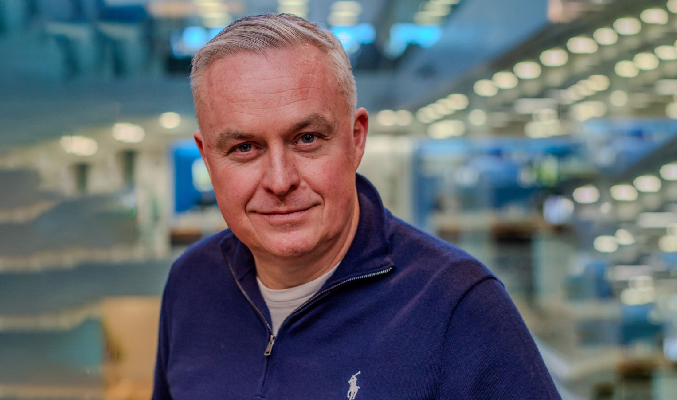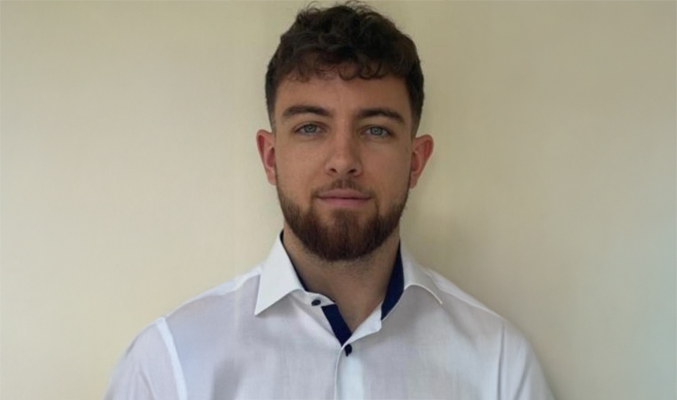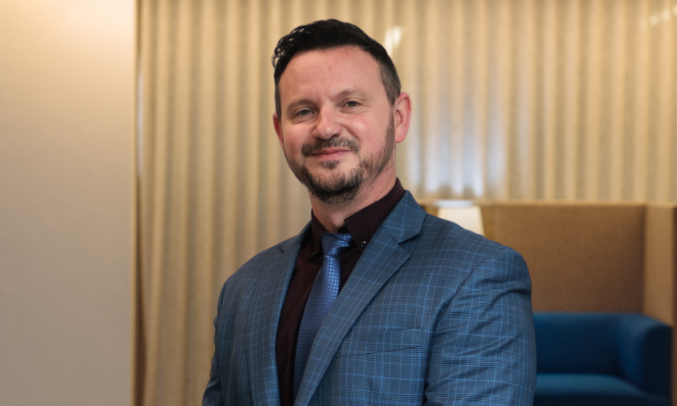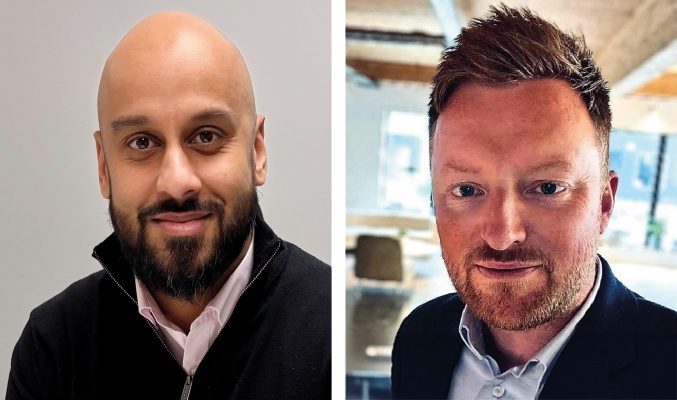Meet four of the industry’s best, BLD’s newest Diamonds
By Laura Miller

A diamond isn’t all about sparkle. It is about transformation, the journey from carbon to collectors item, changing over time into something more than it started as. Bridging Loan Directory’s next four Diamonds have this transformative quality in abundance.
Meet four of the industry’s best, BLD’s newest Diamonds.
Michael Primrose, managing director, The Property Finance Collective

Starting young in property finance can be difficult. Clients are often understandably reluctant to entrust their hard earned cash and development dreams to someone less experienced, using youth as a byword for incapable. It is a problem Michael Primrose knows only too well. “Being 22 at the point of entering the industry, it was very difficult to be taken seriously,” he remembers, “within the industry and with property developers as well”.
Michael, now owner of The Property Finance Collective and The Property Finance Academy, first got into the sector at the age of 18 when he started in conveyancing straight out of school, went into estate agency, back into conveyancing, before entering broking at the age of 22. Like thousands of younger workers trying to be taken seriously when they first start out, he couldn’t do anything about his age. But different to many others he also couldn’t afford to lose. At 22 Michael had just been made redundant from the estate agency at the worst possible time. “Our first child was on the way, so I had to find something relatively swiftly. I managed to get a role at a commercial brokerage, and rapidly realised I had found my dream career.”
Taking responsibility, stepping up to face a challenge, finding a solution. Those are Diamond traits any profession should welcome with open arms, regardless of how old the person is with them. But that isn’t always the case. Michael knew that from his entrance to property. Some may have waited to build up their years to make it easier to convince doubters before making another big leap. Not Michael. “Starting my own brokerage at 24 was also a challenge as again it was difficult to be taken seriously, and also get clients on board with me,” he says. Knowing something will be hard and doing it anyway is a test of character, which it seems clear Michael has passed, becoming (potentially, no-one really has the data on this) the youngest owner of a commercial finance brokerage in the country. Alongside that, he also has a successful training company, educating investors and developers on how to raise finance, and a successful podcast.
Preparation is everything. Having built the mindset the only way to succeed is to face down life’s obstacles head on is standing Michael in good stead now. “The single biggest challenge at the moment is the length of time transactions are taking,” he says, referring to the huge backlog of cases for lenders, brokers, solicitors and valuers are trying to work through. “It is creating an interesting market where speed really is the winner of cases at the moment. Clients are more bothered about speed than they are rates,” he says. In such an environment even the most experienced nerves can fray but he is taking it in his stride.
Closer to their age, Michael is arguably better placed to tell someone looking to enter the industry today how best to approach the move. His advice is a reflection of his own journey. “Make sure you understand that this is not an easy job. It is a genuine grind on a daily basis to push every single case through from inception to completion,” he says. However, as he adds, the rewards are extremely generous within the industry as well, if you are as good as he is.
Raazia Ibrahim, principal lawyer and head of commercial property, Linder Myers

“Personable, always professional, an amazing solicitor,” is a pretty brilliant way to be described by your clients. Raazia Ibrahim is a Diamond problem solver – “I love solving complex legal problems and finding solutions” – in a time where it can often seem our list of obstacles, personal and in the sector, are never ending. “If we have an issue arise on a case she will work to find a solution so we can carry on,” her team says. In a world of critics and people seeking to tear others down, we need dynamic fixers more than ever.
Underlying this work ethic, however, is a realisation, that, in Raazia’s own words, “in this competitive profession, women feel they have to work harder in producing results to be recognised in comparison with their male counterparts”. The law, like property and finance, are changing for the better, but all three professions, especially in the senior ranks, remain dominated by older white men who act as gatekeepers to those trying to break in which can be harder for those who do not fit this mold. “I would say being heard and being recognised as an individual in my own right was probably the most difficult barrier to overcome,” says Raazia.
Like many professional women, Raazia has endeavoured to balance a demanding family life alongside challenging roles. It is, as she points out, still commonplace for women not to receive additional recognition in this regard. In mastering the art of managing her role and staff remotely, she persists in her endeavour to be a role model to other female professionals while walking a tightrope of concerns unique to those not part of the dominant group in their field. “To show assertiveness without the appearance of being domineering has been a crucial part of my role,” she says , an approach she adds that can “often be misconstrued”. As she tries to navigate this maze of career challenges, Raazia says she is “extremely fortunate to have a supportive environment” at Linda Myers.
Being an unrelenting resolver comes at a high price. Raazia puts in long hours at work to make sure she sticks to deadlines, despite having a young family, emailing solutions late into the evening and over the weekend, always at the end of the phone, nothing is ever too much trouble. Burnout culture is real and increasingly employers are moving away from the ‘always on’ culture, realising its damage long-term. But for the young and hungry going way above and beyond the 9 to 5 still offers a fast track to future success.”She is very much a trusted solicitor of ours and I would have no hesitations of her looking after any of my cases,” says one of her clients.
From a young age Raazia has been interested in the legal profession. Unusually, instead of watching soap operas she spent her teenage years reading about the law. “My interest grew accordingly,” she says, “not to mention my father had cleverly and gradually instilled the idea in my mind of becoming a lawyer”. Her father’s admiration for the law made its way into Raazia’s academic psyche. “My entire education was geared towards my ambition and enthusiasm for the legal profession,” she says. During her training an interest in property finance flourished, and she began specialising as a banking lawyer. “It was these formative years that really shaped my interest and provided the platform for my experience and expertise in this field,” she says.
Passion, even coupled with immense hard work, does not mean plain sailing, however. Raazia entered the law 2002, when the necessary training contracts were scarce. “I remember going to countless interviews and filling dozens of application forms,” she says. Undeterred, the work ethic she is now known for in her role at Linder Myers, kicked in, even as a student. “I worked very hard and sought to prove my academic and practical worth,” she says, the proof being her ability to secure a contract while still in the second year of university with a reputable law firm. Her greatest lesson though? That really when it comes down to it, from her dad pushing her to Linder Myers Solicitors’ support, is that achievement is a team sport. “I realise there are no ‘one-man bands’. Success in this industry takes the collective and concerted effort of teams of people, on whom I have come to rely”.
Ben Barbanel, head of debt finance at OakNorth Bank

In a time of acute financial uncertainty for individuals and businesses, as we’ve seen over the last 18 months, banks need to be able to trust and rely on the person making the lending decisions. Ben Barbanel is that person. Despite the ongoing challenges being presented by Covid-19, Ben continued to lead OakNorth Bank’s debt finance team in supporting small and medium-sized businesses across the UK. Under Ben’s leadership and guidance, the team has approved over £1.87bn in new loans since 23rd March when the pandemic first hit, including over £620m via the Coronavirus Business Interruption Loan Scheme (CBILS) and the Coronavirus Large Business Interruption Loan Scheme (CLBILS). “As a lender we have a responsibility to continue supporting viable British businesses and ensuring they have access to the capital they need to survive and thrive through this crisis, despite the numerous unknowns that remain,” says Ben.
To make sure such huge sums only flowed to the right places, Ben has personally joined over 475 credit committees, attending the meetings at all hours of the day and night, as well as on bank holidays and weekends, so worried and stressed out business owners get access to the capital they need to survive and thrive in this environment. The loans Ben has approved have helped to not only provide emergency funding to hundreds of businesses, and in turn save thousands of jobs, but have also enabled countless other businesses to pursue their growth ambitions which will be vital post-pandemic as we look to repair the economy.
It takes the right combination of risk-taking and conservatism to be able to make judgments about lending decisions in the middle of a global pandemic – “It’s a mix between being a realist (so that you make smart credit decisions) and an optimist (so you’re willing to write cheques for businesses you believe in)”, says Ben – which, perhaps unsurprisingly, is exactly how Ben approached joining OakNorth in 2015. After a career at some of banking’s biggest names – RBS, Clydesdale, Santander – it was quite a leap to join a bank so new it didn’t even have its licence yet. “I think the biggest barrier I had to overcome was a mindset one – when Rishi and Joel, OakNorth’s co-founders, approached me about joining them,” he says, “as a father of three with a mortgage to pay, it was a big risk to jump ship from a secure role at an established institution like Santander, to join what was a start-up bank with no brand, no clients and not even a license yet”.
Six years later and he has transacted almost £5bn of loans with OakNorth to support hundreds of UK businesses. “The start-up life isn’t for everyone – it will require a lot of sacrifice, grit and you’re going to be doing a lot more than what the job title on your business card says,” Ben points out, but having tried the alternative, he definitely feels he made the right choice. What he loves most about his job is the shared, collective desire to support UK businesses and in doing so, have a positive impact on communities. He says: “At OakNorth, we really feel like we’re doing our part to help the British economy.”
Rebecca Nutt, head of development monitoring, Atelier Capital Partners

Forging ahead with goals and ambitions that can at times seem impossible pipe dreams is a unifying theme among BLD’s Diamonds, and none more so than Rebecca Nutt. Sat at her desk in an estate agency, she knew she wanted more from property than selling houses. “I realised there was a whole other side to the property industry out there and knew I wanted to get involved”, she recalls.
Nutt asked one of the developers whose projects she was selling for some advice. He told her to look into building surveying, as she’d never be out of work, “because buildings always needed to be maintained”. But the path forward was difficult, and more crucially, expensive. For the Masters in Building Surveying she needed, before she could make the leap from showing prospective buyers around 1 bed flats to actually advising on their structure, she had to save – hard. “I needed £17,000, before I could leave my job and sign up for the one year full time Masters,” she recalls, totting up the hefty bill to realise her ambition to become a surveyor – course fees (£6,000), exorbitant London rent, living costs and transport for the year out.
She did it of course – then on graduation went to get her RICS accreditation exam and become chartered – showing a level of commitment to her chosen path that few could dispute makes her an asset to any firm lucky enough to have her on board. But Nutt isn’t very interested in looking back, because she has her eye on the future of her profession. Asked what the current biggest challenge is she says “recruitment”. “Finding suitably experienced surveyors is a struggle as fewer and fewer surveyors are entering the industry,” she says. She is advocating for RICS to do more to push its apprenticeship route, because, despite her hard won graduate entry to the profession, she knows she picked up the best knowledge on site. “Looking back I learnt a lot more on the job than I did at university,” says Nutt. Apprenticeships are also a lot cheaper to achieve for the student than a masters, which would expand the pool of candidates to a more diverse group. “You don’t need a degree to be a good surveyor, you need good hands on, practical training. If I could have been offered a chance to earn while I learned without any student tuition fees I would have grabbed it,” she says.
Far from pulling up the ladder behind her, she wants to build a longer ladder. Nutt wants the profession promoted more to secondary school leavers and for surveying firms to adapt to take on this level of employee. Meanwhile, she’s also looking at what can be done at the other end of the experience spectrum, to bring together those on their way in and those on their way out of the profession in a solution to its recruitment problem that is as elegant as it is holistic. “There is a lack of appreciation for older surveyors. It’s mad to think that when someone retires we just let them walk out the door and take 40 years of knowledge and experience with them,” she says. Instead she is proposing a system where retired surveyors, if they wanted to, could be retained one or two days a week to help train juniors who need their work checked constantly when starting out and already qualified surveyors, who need to chase fees and targets, don’t have the excess time to dedicate to it. “It seems the perfect match if only we as an industry could get organised to set it up,” says Nutt.

Laura Miller is a freelance journalist who writes about money and business. She regularly appears in UK national and trade newspapers and magazines, and has previously worked for ITV News and the Telegraph among others. Find her on twitter @thatlaurawrites










You must be logged in to post a comment.